Putting on weight? Obesity and weight-loss expert Dr Vidyut Sodha tells us how you can get rid of obesity
Obesity is a common problem now emerging in India.
20 million Indians are obese and by 2025 this number is expected to rise up to 68 million.
It is generally believed that in India only under-nutrition is rampant and obesity is a rare occurrence.
This is far from the truth, as in the year 2000 national survey showed that 25 per cent men and 36 per cent women above 20 years of age were overweight.
Obesity has a tremendous medical, social and economic impact.
The prevalence of this chronic disease is likely to rise further unless concerted efforts are made at individual, social, environmental levels to treat and prevent obesity.
Quacks take advantage of this and try to steer away people from legitimate medical treatment. The treatment of obesity may have multiple goals, depending on the patients' degree of obesity, level of risk and commitment to therapeutic intervention.
Here are a few ways that obesity can be treated.
Behaviour modification
Image: Learn to discipline yourselfOne of the major difficulties in the treatment of obesity is that lifestyle modification represents a central and pivotal component of the overall approach, but modifying ones diet and activity is not only difficult, requiring a concerted effort and decision to change potentially deeply engrained habits, but is also tied to multiple social and other economic factors.
Thus the key to a successful weight management program is assessing readiness to change and facilitating behaviour change.
Very low calorie diets (VLCDs)
Image: Ever considered Very low calorie diets or VLCDs to lose weight...As to date no adult studied by direct calorimetry has needed less than 1200 cals/day to maintain body weight, which implies that actually following a diet less than this should induce weight loss.
More drastic diets (400-600cals/day) have been used by many people but the safety of these diets (VLCDs) have been questioned due to predisposition to cardiac arrhythmias .thus these diets should only be taken under the supervision of a physician.
In addition such stringent diets are difficult to maintain for a prolonged period of time.
Low fat diets
Image: Cut the gyaa! Go for low fat dietsTraditionally low fat diets have been promoted as the preferred approach to achieve weight loss, since fat is more energy dense, high fat foods may be more palatable and there exists a notion that dietary fat is positively associated with body fat.
Although a small amount of weight loss may be observed in these individuals in short term trials, trends in the US demonstrating an increase in obesity despite a substantial decrease in the percentage of fat in the diet suggest otherwise.
Low glycemic index diets
Image: Foods such as potatoes have a high glycemic indexFoods containing refined carbohydrates are more rapidly digestible and elicit marked fluctuations in glucose and insulin levels, which can stimulate hunger and inhibit fat oxidation.
Since carbohydrates differ in their ability to stimulate glucose and insulin release the notion of glycemic index has developed to quantify this and is defined as the incremental area under the glucose response curve after a standard amount of carbohydrates from a test food relative to that of a control food (white bread or glucose).
Glycemic load is the weighted average glycemic index of individual foods multiplied by the percentage of dietary energy of carbohydrates, thus foods such as potatoes and carrots may have a high glycemic index, but those with a greater per cent of carbohydrates (potatoes), have a higher glycemic load.
Low carbohydrate diets
Image: Beware before going in for a long term low carbs dietThe Atkins diet is the prototype of low fat diet and the south beach diet is the more recent version of low carbohydrate diets.
The greater initial weight loss observed on low-carb diets may be related to changes in the total body water, as glycogen stores are mobilised and increased ketone bodies are renally cleared. A person following such diets for a prolonged time however would not achieve a more higher weight loss and will definitely counter many side effects due to high protein diets.
A physician or nutritionist should maintain a watch on people follow such high protein diets! Moreover people who follow such diets don't decrease their bad cholesterol levels and retain a higher fat per cent!
Mediterranean diets
Image: although mediterranean diets contain higher amounts of fat than traditional low fat diets there is usually no increase in body weightThis diet encourages the moderate consumption of fat mainly from foods high in monounsaturated fatty acids, as well as fruits, vegetables, tree nuts, legumes, whole grains and fish and moderate consumption of alcohol.
Importantly although these diets contain higher amounts of fat than traditional low fat diets there was no increase in body weight.
Those assigned to this style of diet either lost more weight or had no difference in weight compared with those taking a traditional low fat diet.
Low salt
Image: Watch out for that salt in your dietPhotographs: Courtesy Venice nutrition / Creative Commons
People who consume high amounts of salt generally retain more sodium in their body giving them a puffy look and thus retaining body water, overall giving an obese look.
Have foods high in potassium and low in sodium causes a diuretic effect and thus eliminating excess water from the body thus reducing overall weight. Keep your salt intake to 2.5-3 gms/day and see the weighing scale go down
Exercise
Image: 30 minutes of cardio five days a week could result in healthy weight lossExercise plays an important part in the weight loss programme. As per the ACE guidelines doing 30 minutes cardio five days in a week would result in a healthy weight loss if well balanced with nutrition.
In the overall weight loss programme 80 per cent depends on how you eat whereas 20 per cent depends on exercise.
Exercise added to a diet program can produce a 20 per cent greater sustained weight loss at one year compared with diet alone.
Doing cardio exercise rather than weight training burns direct fat and there will be a drop on the weighing scale.
Medications
Image: There are medications available for weight loss too but they come with strings attachedMedications may be a useful adjunct to lifestyle modification, mainly by helping to reinforce the intention to restrict food intake. There are currently two agents approved in the US for long-trm treatment of obesity and another one previously approved in Europe, which never got approval in the US due to concerns of psychiatric side effects.
Several medications are approved for the short-term (up to 12 weeks) treatment of obesity.
The US approved medications for weight loss are sibutramine and orlistat. These medications also have their concerned side effects and people before starting them should talk and take advise from their concerned phycisian.
Lifestyle modification
Image: You can lose weight sitting on the couch. You need to change your lifestyle drastically to lose weightThe most important factor for reducing body weight is improving or focusing towards lifestyle changes.
Eating a healthy diet and a daily routine of exercise would bring about a slow and steady weight loss over a period of time reducing the health problems and improving the overall health of a person.
In general doing cardio for 30 mins everyday and choosing foods from the food pyramid: 6-11 servings of cereals, 3-5 servigs of fruits and vegetables, 2-4 servings of milk and milk products, 2-3 servings eggs, meat, fish, nuts, dry beans (proteins) and sparingly using fats, oils and sweets will reduce obesity to great levels.



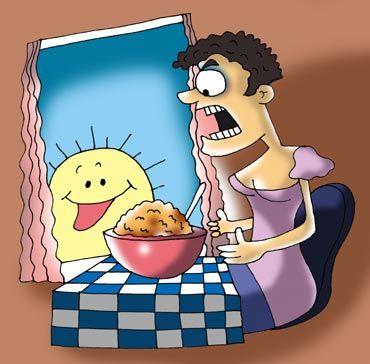
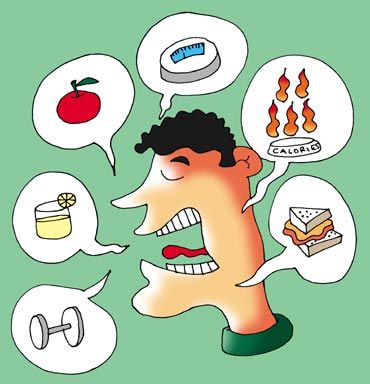
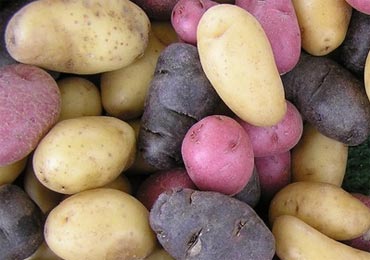
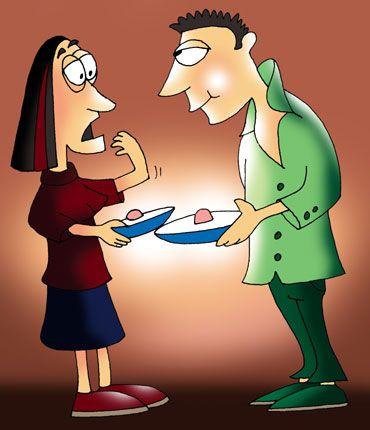
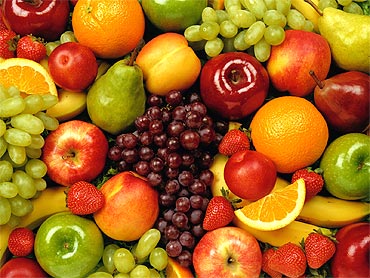



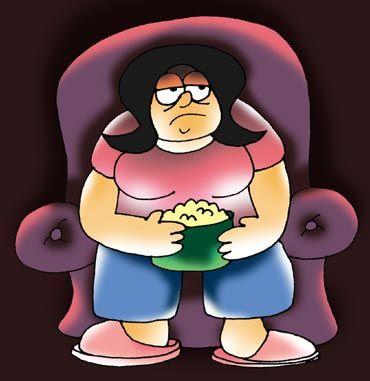
Comment
article